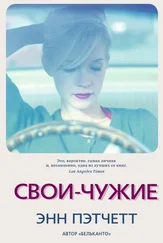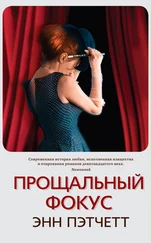And Andrea, still smacking, looked at my mother for the first time, then she pointed to the painting that hung on the wall across from the VanHoebeeks. “My daughter,” she said.
We turned to look, all of us, and there was the portrait of my sister, hanging exactly where it always had been. Maeve was ten years old, her shining black hair down past the shoulders of her red coat, the wallpaper from the observatory behind her, graceful imaginary swallows flying past pink roses, Maeve’s blue eyes dark and bright. Anyone looking at that painting would have wondered what had become of her. She was a magnificent child, and the whole world was laid out in front of her, covered in stars.
Maeve cut a wide path around the sofa where we were sitting and walked across the room to stand in front of the girl she had been. “I was sure she would have thrown that away,” she said.
“She loves the painting,” Norma said.
Andrea gave a deep nod and pointed at the painting. “My daughter.”
“No,” Maeve said.
“My daughter,” Andrea said again, and then she turned and looked at the VanHoebeeks. “My parents.”
Maeve stood there as if she were trying to get used to the idea. We were spellbound as we watched her put a firm hand on either side of the frame to lift the painting off the wall. The frame was wide and lacquered black, no doubt to match her hair, but the painting itself was only the size of a ten-year-old child from the waist up. She struggled for moment to free the wire from the nail and Norma reached up behind the canvas to help her. The painting came away from the wall.
“It’s heavy,” Norma said, and put out her hands to help.
“I’ve got it,” Maeve said. There was a slightly darker rectangle left behind on the wallpaper, outlining the place where it had been.
“I’m going to give this to May,” Maeve said to me. “It looks like May.”
Andrea smoothed my handkerchief out across her lap. Then she started folding it again, each of the four corners in towards the middle.
Maeve stopped and looked at Norma. With her hands full, she leaned over and kissed her. “I should have come back for you,” she said. “You and Bright.”
Then she left the house.
I would have expected Andrea to panic when I got up to follow my sister, or to mark the painting’s departure with some level of violence, but she was consumed by the pleasures of my handkerchief. When I stood she was unbalanced for a moment, then tilted over to rest against my mother like a plant in need of staking. My mother put an arm around her, and why not? Maeve was already gone.
I gave Norma a small embrace at the door. I had never known that Maeve thought about the girls again, but it made sense. Our childhood was a fire. There had been four children in the house and only two of them had gotten out.
“I’m going to stay a minute,” my mother said to me. It was funny to see the two Mrs. Conroys sitting there together—though funny wasn’t the word—the little one dressed like a doll, the tall one still reminiscent of Death.
“Take all the time you need,” I said, and I meant it, all the time in the world. I would wait with my sister in the car.
I walked out the glass front doors and into the late afternoon of the beautiful day. It did not feel strange to see the world from this vantage point, nor did it make any difference. Maeve was in the driver’s seat with the painting in the back. The windows were down and she was smoking. When I got into the car she handed me the pack.
“I swear to you, I don’t smoke anymore,” she said.
“Neither do I.” I took the matches.
“Did that really happen?”
I pointed to the large stain on my shirt, the smear of lipstick and mascara.
Maeve shook her head. “Andrea lost her mind. What kind of justice is that?”
“I feel like we just went to the moon.”
“And Norma!” Maeve looked at me. “Oh my god, poor Norma.”
“At least you got the painting of Andrea’s daughter. I wouldn’t have had the presence of mind for that.”
“I was sure she would have burned it.”
“She loved the house. She loved everything in the house.”
“Except.”
“Well, she got rid of us. Then it was perfect.”
“Everything was perfect!” she said. “Could you believe it? I don’t know what I was expecting, but I didn’t think it was going to look better after we left. I always imagined the house would die without us. I don’t know, I thought it would crumple up. Do houses ever die of grief?”
“Only the decent ones.”
Maeve laughed. “Then it was an indecent house. Did I ever tell you the story about the painter?”
I knew some of it, not all of it. I wanted to know all of it. “Tell me.”
“His name was Simon,” she said. “He lived in Chicago but he was from Scotland. He was very famous, or I thought he was famous. I was ten.”
“It’s a very good painting.”
Maeve looked in the back seat. “It is. It’s beautiful. Don’t you think it looks like May?”
“It looks like you, and May looks like you.”
She took a drag on her cigarette and tipped back her head and closed her eyes. I could tell the way we felt was exactly the same, like we had nearly drowned and then been fished from the water at the last possible minute. We had lived without expecting to live. “Dad was a big one for surprises in those days. He hired Simon to come from Chicago to paint Mommy’s portrait. Simon was going to stay for two weeks. The painting was supposed to be huge, the size of Mrs. VanHoebeek. He was going to come back and paint Dad later. That was the plan. Then when it was all done there would be two Conroys hanging over the fireplace.”
“Where were the VanHoebeeks going?”
Maeve opened one eye and smiled at me. “I love you,” she said. “That’s exactly what I asked. The VanHoebeeks were going up to the ballroom to go dancing.”
“Who told you all this?”
“Simon. Needless to say, Simon and I had a lot of time to talk.”
“You’re telling me our mother didn’t want to spend two weeks standing in a ball gown to have her portrait painted?” Our mother, the little sister of the poor, the assemblage of bones and tennis shoes.
“Would not. Could not. And once she refused, Dad said he wouldn’t have his portrait painted either.”
“Because then he’d have to be over the fireplace with Mrs. VanHoebeek.”
“Exactly. Of course the problem was the painter was already there, and half of the money had been paid up front. You were too little and squirmy to sit for a portrait, so I was hauled in at the last minute. Simon had to build a new stretcher in the garage and cut the canvas down.”
“How long did you sit?”
“Not long enough. I was in love with him. I don’t think you can have another person look right at you for two weeks and not fall in love with them. Dad was so furious about the money and the fact that he had once again failed to please, and Mommy was furious or mortified or whatever she was in those days. They weren’t talking to each other and neither of them would talk to Simon. If he walked in a room they just walked out. But Simon didn’t mind. It didn’t matter to him who he was painting as long as he was painting. All he cared about was light. I’d never thought about light until that summer. Just sitting in the light all day was a revelation. We wouldn’t eat dinner until it was dark, and even then it would just be the two of us. Jocelyn left our food in the kitchen. One day Simon said to me, ‘Do you have anything that’s red?’ and I told him my winter coat was red. He said, ‘Go get your coat,’ or ‘Go geet yur coot.’ I went to the cedar closet and pulled it out and put it on and he looked at me and said, ‘Daughter, you should wear only red.’ He called me daughter. I would have gone back to Chicago with him in a heartbeat if he’d taken me.”
Читать дальше
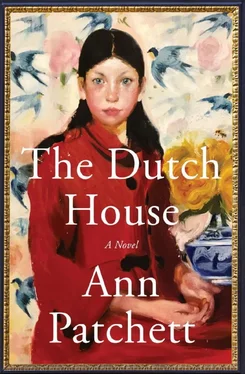
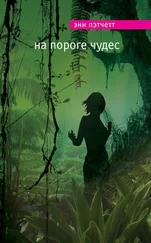

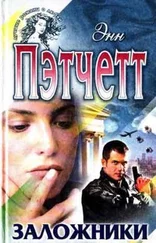
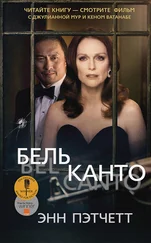
![Энн Пэтчетт - Прощальный фокус [litres]](/books/402782/enn-petchett-prochalnyj-fokus-litres-thumb.webp)
